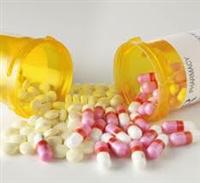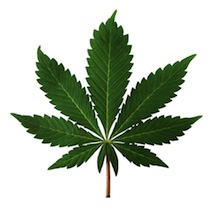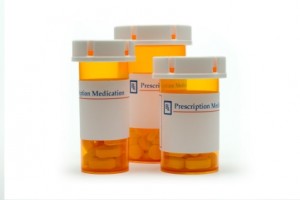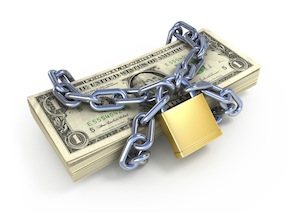 What is the Methadone and Suboxone deception? And who is fueling it? Many unsuspecting substance abusers are being led to believe that by switching from their opiate of choice to a daily intake of Methadone or Suboxone that they are then “clean” or “sober.” When in fact, they are just switching from one opiate to another. With the truth being, as Dr. Julia Aharonov said in a recent article, that Methadone and Suboxone are longer acting and just as (if not more) addicting than heroin. Read more →
What is the Methadone and Suboxone deception? And who is fueling it? Many unsuspecting substance abusers are being led to believe that by switching from their opiate of choice to a daily intake of Methadone or Suboxone that they are then “clean” or “sober.” When in fact, they are just switching from one opiate to another. With the truth being, as Dr. Julia Aharonov said in a recent article, that Methadone and Suboxone are longer acting and just as (if not more) addicting than heroin. Read more →
 New research regarding dopamine and marijuana gives scientific backing to the stoner stereotype of lackadaisical or slacker pot smokers. A recent study found that people who smoke marijuana regularly over a long period of time are more likely to produce less of the brain chemical that is linked to motivation: dopamine.
New research regarding dopamine and marijuana gives scientific backing to the stoner stereotype of lackadaisical or slacker pot smokers. A recent study found that people who smoke marijuana regularly over a long period of time are more likely to produce less of the brain chemical that is linked to motivation: dopamine.
Using PET scans, U.K. researchers compared the brains of regular pot smokers to non-smokers of the same age and sex. The regular pot smokers in the study reported using marijuana quite heavily, began using the drug between the ages of 12 and 18, and had experienced symptoms of psychosis (bizarre thoughts or strange sensations) while using marijuana. What the researchers found was that the regular pot smokers, and those who began smoking pot at an early age, had lower levels of dopamine in a part of the brain known as the striatum. Read more →
There is a new super painkiller called Zohydro ER that is waiting approval from the Food and Drug Administration (FDA). The new drug is causing a stir of controversy because of its strength and potential for misuse. Because of this, the new drug is being compared to other opiate painkillers such as Vicodin and OxyContin that have had devastating effects in regards to substance dependence.
Zohydro ER is an extended release (12 hour) form of the opiate drug called hydrocodone. Unlike other opiate painkillers on the market like Vicodin that are a mix of hydrocodone and acetaminophen, Zohydro ER contains 100 percent hydrocodone. Mixed opiate painkillers like Vicodin are extremely addictive, but a pure hydrocodone painkiller like Zohydro ER has an even greater potential for dependence.
Another painkiller, OxyContin, which is made from the opiate oxycodone, is the most abused prescription drug in the U.S. (Vicodin is second and Zohydro ER contains 10 times more hydrocodone than Vicodin). OxyContin was also a time-release drug in which crushing the pill avoided this function. This resulted in a major abuse problem and gave OxyContin (which is no longer available in its original form because of the rampant abuse) the label “hillbilly heroin.”
A major concern with Zohydro ER is its time-release strength, which is 12 hours (as opposed to Vicodin which is only 2-4 hours). As with OxyContin, abusers could potentially have access to the full strength of the pill by crushing it then eating or snorting it and receiving a large and dangerous dose of the opiate drug. Approval for this drug (the manufacturer, Zogenix, stands to make millions from it) comes at a time when prescription drug abuse and overdoses are reaching epidemic proportions in this country.
 At a time when drug and alcohol abuse among teens is stabilizing, prescription drug abuse continues to escalate (up 33 percent from 2008). When we think of drug use among teens, we think of parents as the combative force against it. But recent studies are showing us that might not be the case. In fact, parents might be contributing to the problem of prescription drug abuse.
At a time when drug and alcohol abuse among teens is stabilizing, prescription drug abuse continues to escalate (up 33 percent from 2008). When we think of drug use among teens, we think of parents as the combative force against it. But recent studies are showing us that might not be the case. In fact, parents might be contributing to the problem of prescription drug abuse.
A recent study by The Partnership at Drugfree.org found that many parents, often because of lack of awareness, misinformation or denial, are taking a more hands-off approach when it comes to prescription drugs. And even though many parents are finding time to talk to their kids about alcohol or street drugs, far less are talking to them about the dangers of prescription drugs. The scary truth is that researchers found 1 in 4 teens had misused prescription drugs. So why when we are facing a prescription drug abuse epidemic in this country are parents drawing a line between prescription drugs and illicit drugs? Read more →
 Some people think they are helping a loved one through a crisis, when they are actually financially enabling addiction. It’s sometimes difficult to tell. Watching a loved one struggle with addiction can be a very confusing time. The lines are not always clear. But addiction doesn’t just take an emotional toll on relationships, it can also take a financial one. Here are some tips on how to avoid financially enabling addiction and to be a part of the solution.
Some people think they are helping a loved one through a crisis, when they are actually financially enabling addiction. It’s sometimes difficult to tell. Watching a loved one struggle with addiction can be a very confusing time. The lines are not always clear. But addiction doesn’t just take an emotional toll on relationships, it can also take a financial one. Here are some tips on how to avoid financially enabling addiction and to be a part of the solution.
Friends and family want to support their struggling loved one, but most don’t want to enable the problem. Ask yourself these these questions (PsychCentral.com) to see if you might be financially enabling addiction: Read more →
 With June being Post-traumatic stress disorder (PTSD) awareness month, I wanted to take a closer look at PTSD and what is happening in the brain. What is PTSD? Who does it affect? And what is the correlation between PTSD and addiction? The National Institute of Mental Health estimates that 7.7 million Americans, 18 years and older, suffer from Post-traumatic stress disorder (PTSD). According to Science Daily, the number of self-reported PTSD cases has tripled among combat-exposed military personal since 2001. Read more →
With June being Post-traumatic stress disorder (PTSD) awareness month, I wanted to take a closer look at PTSD and what is happening in the brain. What is PTSD? Who does it affect? And what is the correlation between PTSD and addiction? The National Institute of Mental Health estimates that 7.7 million Americans, 18 years and older, suffer from Post-traumatic stress disorder (PTSD). According to Science Daily, the number of self-reported PTSD cases has tripled among combat-exposed military personal since 2001. Read more →


